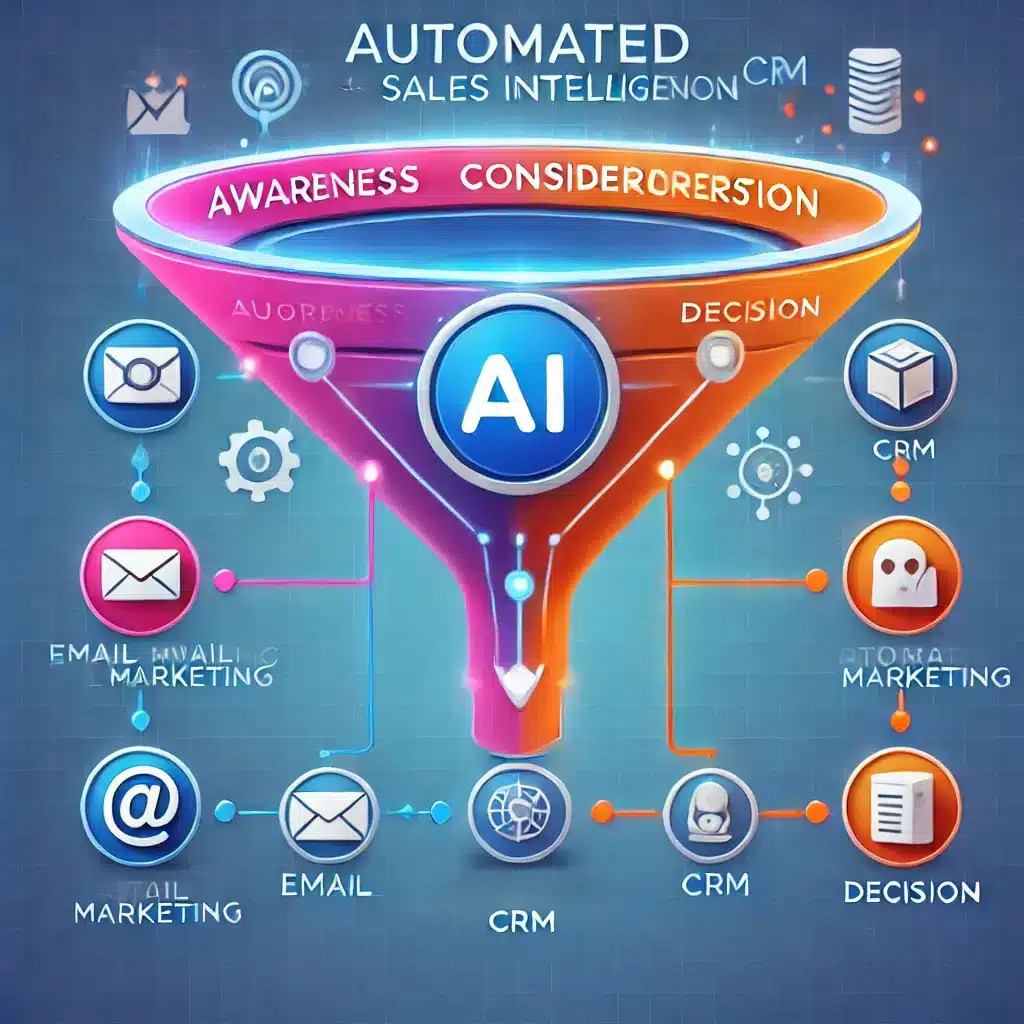Artificial Intelligence (AI) has revolutionized the field of marketing analytics, offering unprecedented capabilities for marketers to extract valuable insights from complex datasets. The integration of AI technologies in marketing enables businesses to optimize their marketing strategies, improve campaign effectiveness, and gain deep customer insights. This article explores the power of AI marketing analytics tools, how they work, and their transformative impact on the marketing landscape.
What is AI Marketing Analytics and How Does it Work?
Understanding AI in Marketing Analytics
AI in marketing analytics refers to the use of AI technologies to analyze marketing data, derive insights, and make data-driven decisions. This involves leveraging machine learning algorithms, predictive analytics, and other AI models to process vast amounts of customer data and extract valuable insights. The primary goal is to enhance marketing performance by identifying patterns, predicting customer behavior, and optimizing marketing efforts. By utilizing AI marketing tools, businesses can automate data analysis, reduce human error, and make more informed decisions faster than ever before.
The Role of Machine Learning and Predictive Analytics
Machine learning and predictive analytics are critical components of AI marketing. Machine learning algorithms can process large volumes of marketing data to identify trends and predict future outcomes, enabling marketers to proactively adjust their strategies. Predictive analytics uses historical data to forecast future marketing performance, customer behavior, and market trends. These AI-powered analytics tools help marketers understand their audience better, personalize marketing campaigns, and maximize return on investment (ROI). The integration of machine learning and predictive analytics in marketing analytics tools transforms raw data into actionable insights that drive effective marketing decisions.
How AI Marketing Analytics Tools Process Data
AI marketing analytics tools work through a multi-step process involving data collection, cleansing, analysis, and insight generation. Here’s how the process works:
- Data Collection: Marketing data is collected from various sources, such as social media, customer databases, website interactions, email campaigns, and CRM systems.
- Data Cleansing: Ensuring the accuracy of the data is crucial. Data cleansing removes inaccuracies and inconsistencies, ensuring that the analysis is based on high-quality data.
- Data Analysis: Advanced AI algorithms analyze the cleansed data to uncover patterns, trends, and correlations that would be difficult to detect using traditional methods.
- Insight Generation: The analysis generates valuable insights that marketers can use to optimize campaigns, personalize messages, and improve targeting strategies.
AI marketing analytics tools also employ automated processes that continuously improve over time, learning from new data to deliver more refined insights.
The Role of AI in Marketing Analytics for Improved Campaigns
AI marketing analytics tools enable marketers to automate key processes, streamline decision-making, and increase the effectiveness of their campaigns. By processing large datasets faster and more accurately than traditional methods, AI helps marketers focus on strategy and creative aspects rather than getting bogged down in data analysis.
Why Should Marketers Use AI Marketing Tools?
The rise of AI marketing analytics brings several advantages to marketing professionals. Firstly, AI marketing analytics tools automate repetitive tasks, freeing up marketers to focus on strategic activities. Here are some of the key benefits that businesses gain by integrating AI into their marketing efforts:
- Automation of Repetitive Tasks: AI marketing tools automate repetitive tasks like data analysis, reporting, and segmentation. This frees up time for marketers to focus on high-level strategies and creativity.
- Improved Decision-Making: AI’s ability to process vast amounts of data quickly results in better, more informed decisions. It helps marketers identify trends, refine targeting, and optimize campaigns.
- Better Targeting and Personalization: AI can segment audiences based on various customer behaviors, enabling marketers to create highly targeted and personalized campaigns that resonate with their audience.
- Predictive Analytics: AI allows businesses to forecast customer behavior, market trends, and sales outcomes, enabling proactive adjustments to campaigns and strategies.
AI vs Traditional Marketing Analytics: A Comparison
Traditional marketing analytics relies heavily on manual processes and often lacks the sophistication needed to manage and analyze large datasets. While traditional methods use historical data to track trends, AI marketing analytics tools use advanced algorithms and predictive capabilities to process and analyze data more efficiently and accurately.
Key Differences:
- Speed: AI analytics tools process data faster than traditional methods, allowing marketers to make quicker, data-driven decisions.
- Accuracy: AI-powered tools eliminate human error, improving the accuracy of marketing analysis.
- Scalability: AI can handle large datasets from various sources without compromising accuracy, while traditional methods can struggle to keep up with massive volumes of data.
- Learning Ability: AI continuously learns from new data, improving its predictions and recommendations over time, whereas traditional methods are static and limited to past data
What are the Key AI Tools for Marketing Analytics?
Numerous AI-powered marketing tools have become essential for modern marketing strategies. Some popular tools and platforms include:
- Google Analytics: Uses AI to analyze website traffic and user behavior, providing insights into user engagement and campaign performance.
- HubSpot: An AI-driven CRM platform that helps marketers track customer behavior and automate email marketing campaigns.
- Hootsuite: A social media management tool with AI features that help businesses track social media trends and measure campaign effectiveness.
- Salesforce Einstein: An AI platform that provides insights into customer behavior and helps with sales forecasting and marketing automation.
- Klaviyo: An email marketing tool that uses AI to segment audiences and optimize campaigns for better engagement and conversion rates.
Implementing AI Tools in Your Marketing Strategies
For businesses to realize the full potential of AI marketing analytics, it’s essential to implement the tools effectively. Here are some steps to integrate AI into your marketing strategy:
- Define Clear Objectives: Establish specific goals for AI tools, such as increasing engagement or improving campaign ROI. Clear objectives help measure success and guide the implementation process.
- Choose the Right Tools: Select AI tools that align with your marketing goals and integrate well with your existing systems (CRM, email marketing, etc.).
- Train Your Team: Educate marketing teams on how to use AI tools effectively to maximize their potential.
- Monitor and Optimize: Continuously monitor AI-driven campaigns and gather feedback to refine strategies for better results.
How Can AI Help Marketers with Sentiment Analysis and Natural Language Processing?
Introduction to Sentiment Analysis in AI Marketing
Sentiment analysis is a powerful AI marketing technique that involves analyzing textual data to determine the sentiment or emotional tone behind customer opinions. Using AI and machine learning algorithms, businesses can process vast amounts of social media posts, reviews, and other user-generated content to gauge public sentiment. This information helps marketers understand how customers feel about their brand, products, or services.
Leveraging Natural Language Processing for Customer Insights
Natural Language Processing (NLP) is a branch of AI that focuses on the interaction between computers and human language. In marketing analytics, NLP is used to extract meaningful insights from unstructured textual data, such as customer reviews, social media posts, and survey responses. By analyzing this data, marketers can identify common themes, customer preferences, and emerging trends. NLP enables businesses to gain a deeper understanding of their customers’ needs and tailor their marketing efforts accordingly.
Real-World Applications of Sentiment Analysis in Marketing
Real-world applications of sentiment analysis in marketing are vast and impactful. Companies use sentiment analysis to monitor brand reputation, track customer satisfaction, and identify potential issues before they escalate. For example, a brand may analyze social media conversations to detect negative sentiments and respond promptly to mitigate any damage. Sentiment analysis also helps in refining marketing content by understanding what resonates with the audience.

The Future of AI-Powered Marketing Analytics
The future of AI in marketing analytics is bright, with several emerging trends shaping the industry:
- Hyper-Personalization: AI will enable even more personalized experiences for customers, from content recommendations to targeted advertising.
- Predictive and Prescriptive Analytics: AI will not only forecast customer behavior but also recommend the best actions to take based on predictive models.
- Increased Automation: As AI technologies continue to evolve, marketing automation will become more intelligent, allowing marketers to focus on strategy and creative aspects.
The Potential of AI Automation in Marketing Analytics
The potential of AI automation in marketing analytics is immense. Automation through AI can streamline various marketing processes, from campaign management to customer segmentation and content creation. AI-driven automation allows marketers to execute complex tasks efficiently and consistently, reducing the scope for human error. For instance, automated email marketing campaigns can be personalized at scale, improving engagement and conversion rates. AI automation empowers marketing teams to focus on strategic initiatives that drive business growth.
Conclusion
AI-powered marketing analytics is revolutionizing the way businesses approach data analysis, customer targeting, and campaign optimization. By utilizing AI tools like machine learning and predictive analytics, marketers can improve campaign performance, achieve higher engagement, and deliver more personalized customer experiences. As AI continues to evolve, its role in marketing analytics will only become more vital in helping businesses stay competitive and drive business growth.
FAQs
- What is AI marketing analytics?
- AI marketing analytics uses AI technologies to analyze marketing data, uncover insights, and optimize campaigns for better performance.
- How does AI help marketers?
- AI automates data analysis, personalizes campaigns, predicts customer behavior, and improves decision-making, enhancing marketing efficiency.
- What are the benefits of AI in marketing?
- AI boosts productivity, improves targeting, enhances personalization, increases campaign ROI, and provides data-driven insights for better decisions.
- How does AI optimize marketing campaigns?
- AI optimizes campaigns by predicting customer behavior, personalizing outreach, and analyzing real-time performance to adjust strategies.
- What is sentiment analysis in AI marketing?
- Sentiment analysis uses AI to understand customer emotions from text, helping businesses adjust strategies based on customer feedback.



